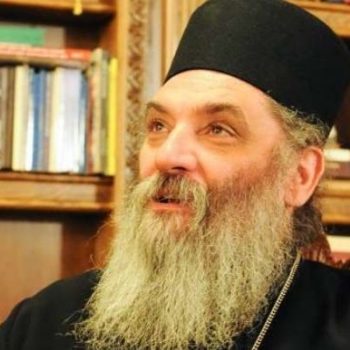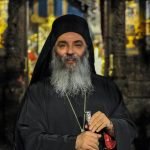Interview of the Bishop Parthenius of Antania, Abbot of the Holy Bigorski Monastery dedicated to The Honourable Forerunner, at the request of the Ukrainian News Agency РЕЛІГІЙНА ПРАВДА
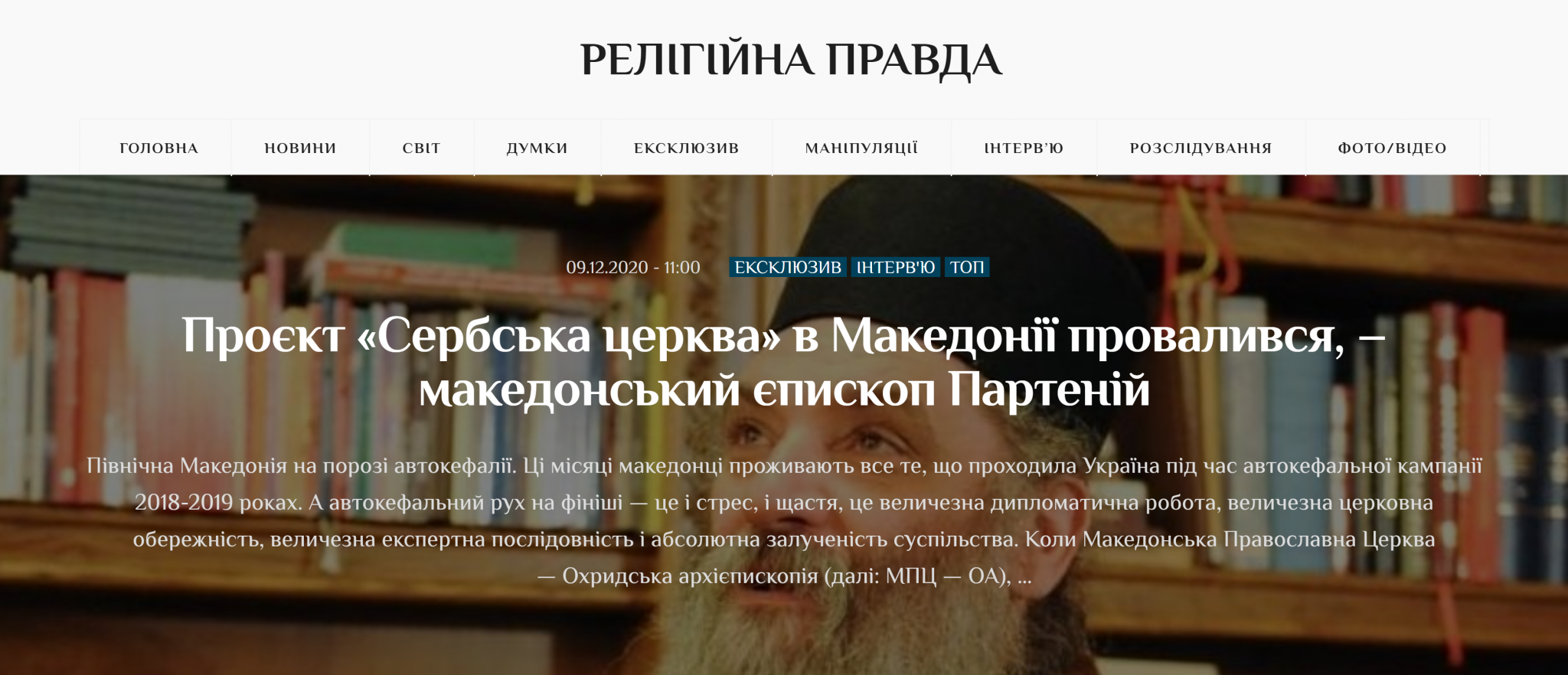
- Dear Bishop, both the secular and the ecclesiastical authorities of North Macedonia, have addressed the Ecumenical Throne with an appeal for autocephaly. Personally, I am glad with you, but at the same time sympathise with you. I am glad because it’s a great honour and fortune to personally go through the process of recognition of the Church. But I feel sympathetic because it is also a great burden. I truly wish you all the strength and luck in this process. The Ukrainian people were exceptionally united and unanimous, in their request to be granted a Tomos. The final letter addressed to Fener in 2018, to support the appeal, the same was signed by all the religious scholars, analysts and moral authorities in Ukraine. What is the attitude of the Macedonian citizens?

Bishop Parthenius: First let me express my gratitude for the honour you have bestowed upon me, asking me the last among the Bishops of Christ’s Church, to give an interview for your esteemed news agency. I sincerely thank you for your good wishes and sympathy in regards to the recognition process of our Local Orthodox Church. In connection to your question, I feel free with great joy and open hearth to state that the Macedonian society is united around the issue of the recognition of our autocephaly. For decades now, the Orthodox people in Macedonia, have been waiting and fighting for the privilege to be accepted by their Orthodox brothers around the world, within the family of the Local Orthodox Churches. I believe, that so far in history, no other Local Orthodox Church have been placed under such cruel and long-term isolation, the way we have been. Therefore, the greatest part of the Orthodox population in our country, is eager and impatient to be granted the Tomos for autocephaly of their own Mother Church, Macedonian Orthodox Church – Ohrid Archbishopric (MOC-OA). That was the reason our government leaders appealed, quite correctly, to the Ecumenical Patriarchate, which is the highest authority in the Orthodox world and the only one who has the right to ekliton (to decide upon appeals) in case of a dispute, as well as the right to grant autocephalies. In fact, the Ecumenical Patriarchate granted the Tomos of all the newly founded Churches, beginning with the Russian and all the way to the Polish, and most recently – the Ukrainian Church.
- When it comes to the autocephalies of other countries, we always compare their situation with the one in our own country. Comparing the situation in both of our countries, I see incredible predictability in the behaviour of your secular leadership. In one moment, they were reluctant towards the growth of the Serbian Church on the Macedonian territory and liberated their own nation from the danger of religious division, at the same time relieving the spiritual progress from the manipulative myths and propaganda. In our country, Moscow, dividing the Ukrainian people in different jurisdictions, created an opposition between the so-called “schismatic and canonical faithful”. Am I right to think that in Macedonia there is no such division to “canonical and non-canonical”, and that there is a prevailing understanding of the existence of a single Church which is not recognized yet? Who has the property rights of the main sanctuaries, monasteries and churches in Macedonia?
Bishop Parthenius: You have a correct understanding of the ecclesiastic situation in our country. It is true that in Macedonia, the vast majority of the Orthodox population, regardless of their ethnic background, considers MOC-OA as their only canonical Church. It practically possesses all the sanctuaries, churches and monasteries, while as the clergy of the unsuccessful project called “The Serbian Church” in Macedonia, which has only a small number of followers, no more than 50, performs their services on private properties and is financially supported by the Ministry of Religious Affairs of the Republic of Serbia. In addition to that, the holy clergy of MOC-OA, has the support of all the social, political, cultural and scientific institutions in our country. I would like to stress here that, when the attempt was made for the creation of a parallel hierarchy under the Serbian jurisdiction, i.e. when the former Metropolitan of Povardarie Mr John Vranishkovski, accepted the invitation of the Serbian Church and recognized the draft agreement from Nis, which by the way was a proposal and was never ratified by our Synod – the Macedonian legal authorities, protected the renegaded Metropolitan John from the revolted faithful, who would in no case accept the creation of a Serbian Ecclesiastic Exarchate, and in that way prevented the situation from developing into something more sinister. In that way, from the very beginning, it was obvious that this political project from the Serbian Church would fail. 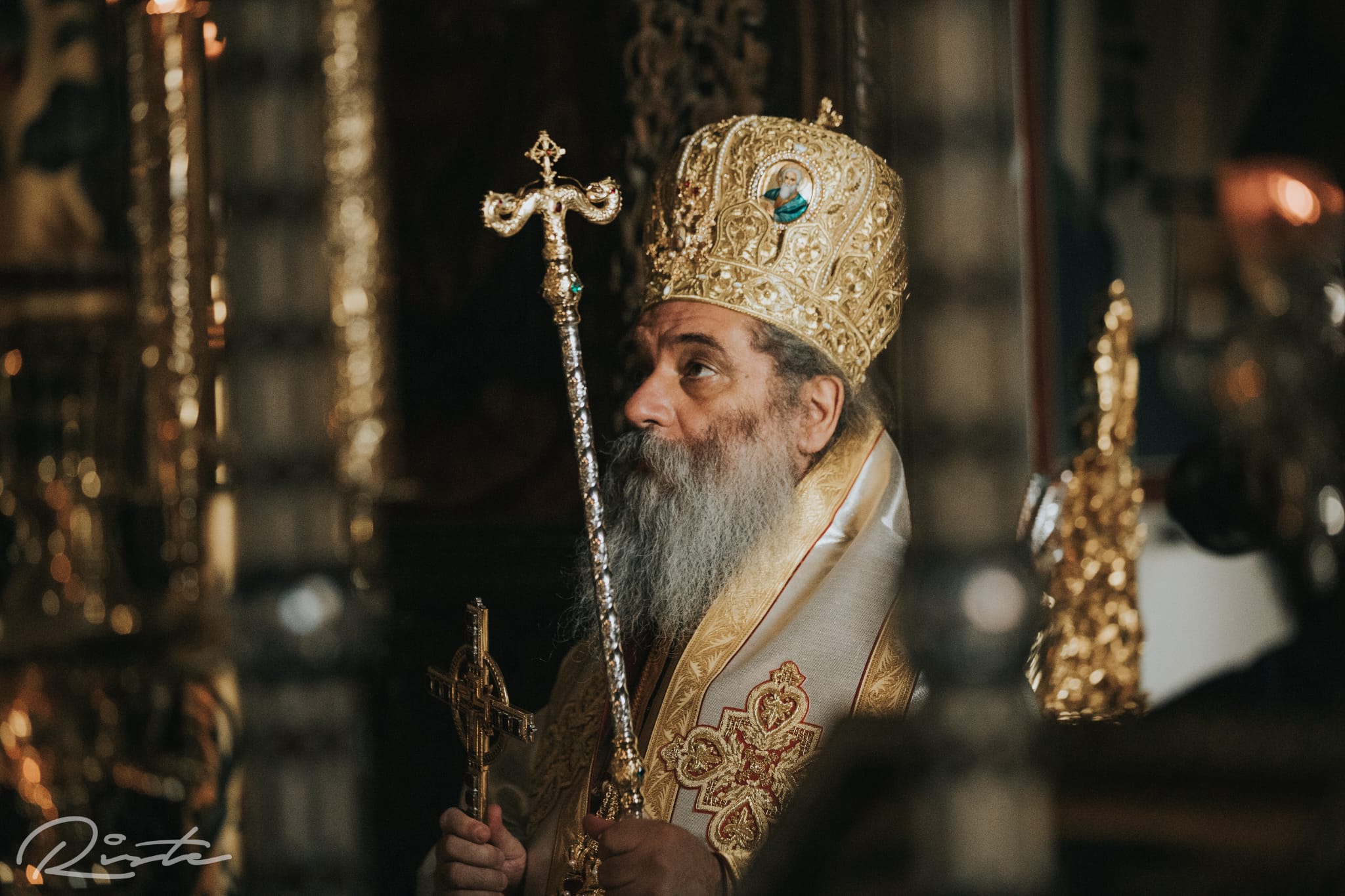
- The Ukrainian autocephaly appeared as a result of the inclination to be separated from the imperial influence, and the involvement of politics in the Church. Moscow behaved exceptionally rough and indecently in their desire to dominate in everything, including the spiritual. For a longer period of time, there is no empire on the Balkans. Why are Macedonian so eager to have their own autocephaly? I asked the same question in Montenegro, so I would like to hear your reply as well. What is so wrong with the Serbian Church that you decided to desert it? In your history in 2004, there was a situation when more than hundred monks of MOC-OA, converted to the unregistered, but clearly existing Serbian Church in Macedonia. Why did they do this?
Bishop Parthenius: That is correct, there are no more empires on the Balkans, but unfortunately, that’s not the case with the megali-expasionistic ideologies which are still present in the minds of some individuals among the politicians and the clergy. Thus, the Kingdom of Yugoslavia, the main political strength of which was the hegemony rule of the Serbian rulers, does not exist anymore. However, the idea for the same imperial supremacy has never really ended. But what hurts the most and causes the greatest damage is the fact that obviously some individuals of the Serbian Orthodox Church still live with that kind of ideology for the Great Serbian Church from the time of Yugoslavia, including the desire for a certain Great Serbian Empire. A proof of this is the fact that the recently reposed Serbian Patriarch added the countries of the Former Yugoslavian Kingdom to his title.
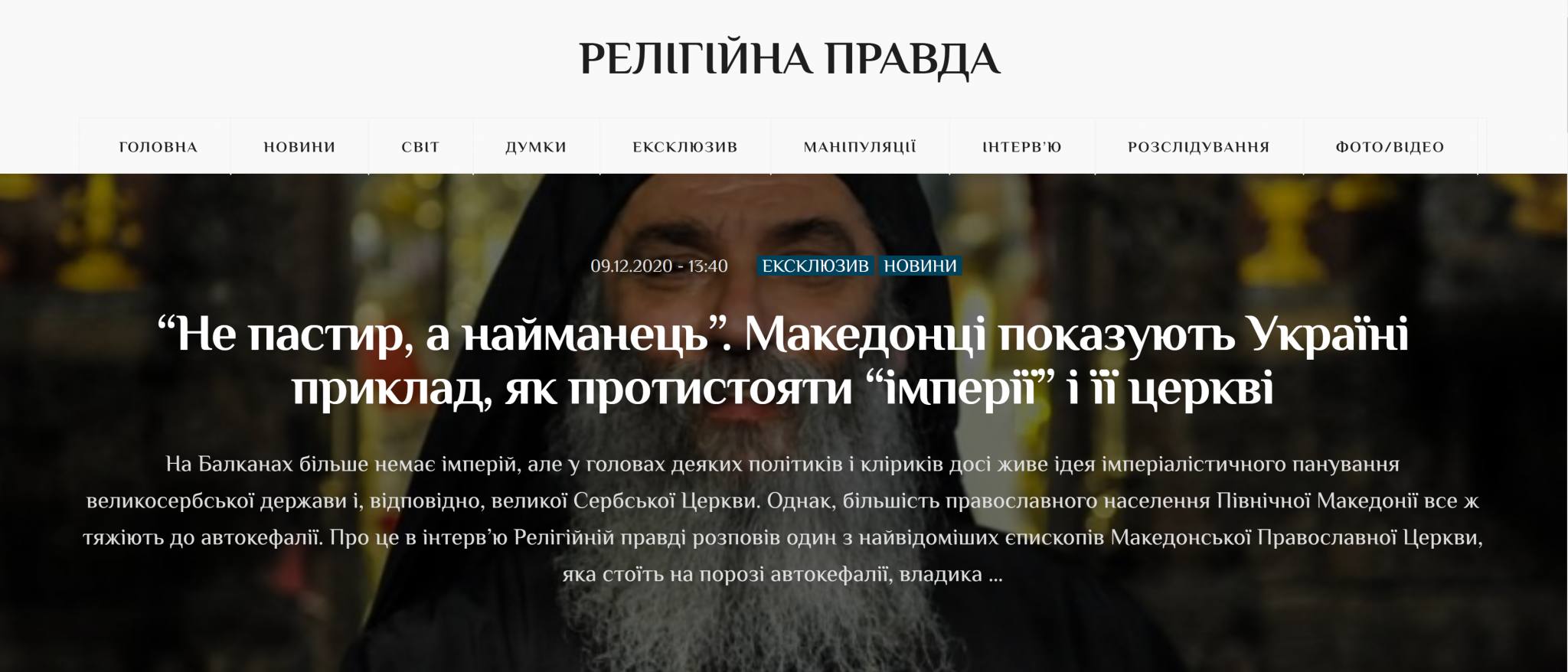
The Macedonians and the other Orthodox minorities in our country are eager to have their autocephaly, because the collective memory of the Orthodox nation on this territory is deeply imprinted with the recollection of the authentic autocephalous Ohrid Archbishopric, which was profoundly connected with the Ecumenical Patriarchate, and guided the people towards the redemptive word of Christ for nearly eight centuries. On the other hand, the Serbian Church, historically speaking was the shortest jurisdiction and had the Macedonian dioceses under their control for a very short period of time, the time of the Serbian occupation of the Vardar Region of Macedonia. This happened in 1918, when the local high-clergy was expelled by force and a great part of the Macedonian priesthood was subjected to horrible torture, prosecution and murders, carried-out by the Serbian army and gendarmerie. Certainly with the blessing of the head of the Serbian Church. There are many historical documents and testimonies to confirm this. After the end of the Second World War and the creation of the Macedonian State, the Serbian clergy which left the Macedonian lands never dared to come back again to the new Macedonian country, terrified by the anger of the local population who never considered them as their own spiritual leaders and shepherds, but rather as mercenaries. Actually, the Macedonian spiritual leaders, and faithful were strongly opposing and not allowing the return of the Serbian hierarchs in the Macedonian dioceses, all the more because it never met their spiritual needs, the way a Mother-Church should. It simply served as an instrument for Serbian assimilation. Such situation brought about the initiative for the revival of the Ohrid Archbishopric – something which took place in 1958. At the beginning the Serbian Church, faced with the eagerness of the Orthodox population, had to give the autonomy which was supposed to grow into an autocephaly, through the jointed appeal of the Serbian and Macedonian Bishops to the Ecumenical Patriarchate, which as mentioned before, is the only one with the historical and canonical privilege to grant Tomos for autocephalies. Unfortunately, the Serbian Church continued to regress and not respect the Macedonian autonomy, but rather to abuse it for further assimilation and denial as well as, for usurping Macedonian Church territories. That’s why in 1967, in Ohrid the autocephalous status of the Ohrid Archbishopric revived in the MOC-OA, and was proclaimed. After that step, the Serbian Church stopped co-servicing and the same thing was requested from all other Orthodox Churches through encyclical sent by then the Serbian Patriarch German. In that way, the Macedonian Orthodox people were proclaimed “schismatic” not on their own will. In the last 50 years, our existential struggle for the recognition of the autocephaly was completely ignored – simply as if we had no right to exist. Unfortunately instead of reaching a solution, the bad situation was additionally worsen with the creation of the parallel ecclesiastic hierarchy, the Serbian representatives headed by the former Metropolitan of Povardarie Mr John Vranishkovski. It is with sorrow in our hearts we conclude that they have become victims of the wrong Serbian ecclesiastic-national politics, because there are nothing than a fictive church in Macedonia, without any support from the people. So far, this unprecedented act of creating parallel hierarchy of the Serbian Church only caused great damage on the Orthodox Church in Macedonia, because such move made many people lose faith in Orthodoxy in general. I have to mention here that, the information of alleged conversion of more than 100 monks to the Serbian Church is completely false, and consider it a figment of someone’s propaganda. In reality we are talking about just a few monks some of which became Bishops guided by their aspirations for fame. But later most of them renounced monasticism.

Please have in mind, that we have no problem nor animosity towards the fraternal Orthodox nation, nor towards the Church in the Republic of Serbia. On the contrary, our love towards them is equally strong as is towards any human-being especially towards Christians, and MOC-OA asked for negotiations with SOC on several occasions attempting to find a solution of our issue through the decision of Constantinople, but they were silent to our appeals. Now we sincerely hope that the new Serbian Patriarch would act in the spirit of the evangelical love, and support the goodwill of the Ecumenical Patriarchate to grant our Church a Tomos for autocephaly. After all, Constantinople was the place where SOC directed us in the past when the dialogue was on. So this act of the new Patriarch would start a new page in the fraternal relations of our two Local Churches, which would make him a peacemaker. He could also direct the Orthodox Ohrid Archbishopric (OOA) to reconcile with the official Mother Church – MOC-OA. It’s about time, we stop with blackmails, intrigues, and coercion and start acting according to Christ’s words: “A new commandment I give unto you, that ye love one another; as I have loved you, that ye also love one another”.“ (John 13,34-35).
- Here in Ukraine, during the granting of the autocephaly we feared a great treat from the Moscow Patriarchate. The resistance by Moscow and its agents was incredibly strong. What is the situation in Macedonia like? Do you feel resistance?
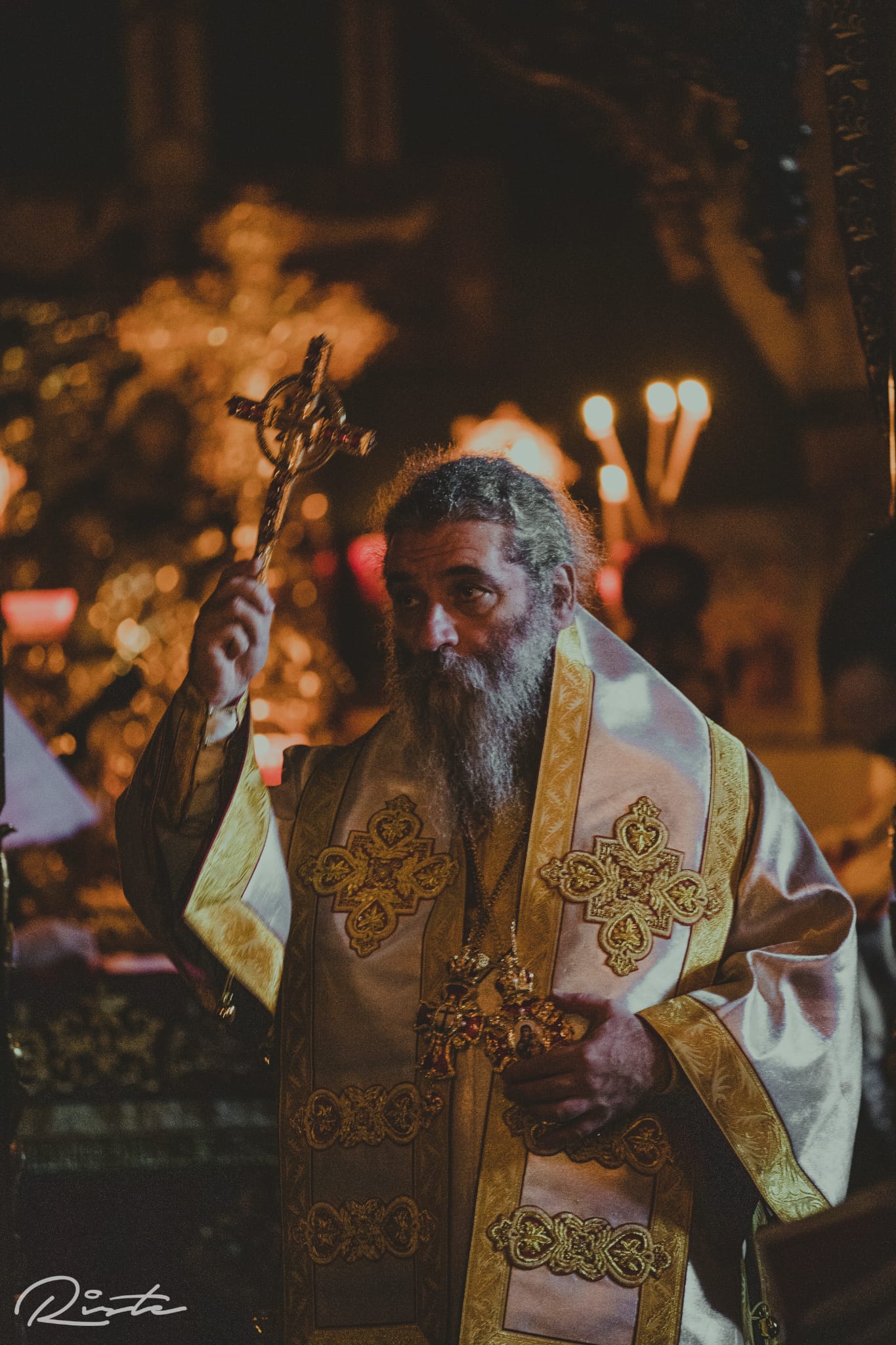 Bishop Parthenius: Certainly there is a great resistance. Unfortunately there are some forces who do not want the restoring of unity among the Orthodox brother nations and work continuously to prevent the mutual cooperation. The influence of propaganda and secret services is great not just in our country but also in the neighbouring ones. Actually the Russian Church is pressuring all the ecclesiastic circles which approve the solution of the Ukrainian ecclesiastic issue, or recognize the high authority of the Ecumenical Patriarchate. Also we should not forget, that it is nearly a century since we have been under the authority of Belgrade, therefore, the presence of the Serbian secret services is understandable. They work not just against the recognition of MOC-OA but also strive to prevent the Euro-Atlantic aspiration of our country. We, as a Monastery, have also felt the pressure of foreign services, especially after taking the side of the truth, and of the right canonical order in the Church.
Bishop Parthenius: Certainly there is a great resistance. Unfortunately there are some forces who do not want the restoring of unity among the Orthodox brother nations and work continuously to prevent the mutual cooperation. The influence of propaganda and secret services is great not just in our country but also in the neighbouring ones. Actually the Russian Church is pressuring all the ecclesiastic circles which approve the solution of the Ukrainian ecclesiastic issue, or recognize the high authority of the Ecumenical Patriarchate. Also we should not forget, that it is nearly a century since we have been under the authority of Belgrade, therefore, the presence of the Serbian secret services is understandable. They work not just against the recognition of MOC-OA but also strive to prevent the Euro-Atlantic aspiration of our country. We, as a Monastery, have also felt the pressure of foreign services, especially after taking the side of the truth, and of the right canonical order in the Church.
- We know how profoundly Constantinople studies the canonical rights and historical roots before granting an autocephaly, and also appoints exarchs who thoroughly study the situation in the country. Is the scenario for the canonical and historical strategy already clearly set for granting autocephaly to the Macedonian Church?
Bishop Parthenius: The Ecumenical Patriarchate, the Great Mother Church, as the Primal Throne Church in the Orthodox Oecumene, whose foundations have been established since the apostolic time, has always approached such great issues very thoroughly and wisely – as, it did among the other things with the Ukrainian issue. The very fact that, despite the complex and difficult conditions in which the Mother Church found itself after the fall of Constantinople it has survived and persists to this day, testifies of the accumulated experience, wisdom and of course God’s help, support and enlightenment. Apparently even today the Mother Church, headed by His Holiness the Ecumenical Patriarch Bartholomew, re-establishes with great wisdom and humility, the authority of the Primary Church which has been weakened for centuries, and also the order within the Orthodox Churches, as foreseen by the decisions of the councils. Exercising his right to convene councils, the Ecumenical Patriarch Bartholomew convened the Pan-Orthodox Council of Crete in 2016, which confirmed the right of the Ecumenical Patriarch to grant Tomos for autocephaly and to be an arbiter in inter-Orthodox disputes . Unfortunately, it was those Churches that blackmailed the most and set conditions for them to attend, despite the fact that all their objections were accepted, who showed extreme unkindness and cancelled their presence at the last moment. It should be noted here that regarding the Bishops cancelling the presence at a council convened by their Primate or by the Ecumenical Patriarch is a violation of the episcopal vow. Now, on the other hand, we hear statements from certain circles that for them the Ecumenical Patriarchate is no longer the highest authority, which is a severe blow to the unity of Orthodoxy and a great temptation. Some even insolently accuse the Ecumenical Patriarchate that it allegedly changed ecclesiology, when in fact they were to blame for it. The Ecumenical Patriarchate has always strictly adhered to true ecclesiology and canons.
I think that the decisions of the Ecumenical Patriarchate regarding autocephaly should be respected by all, because otherwise the cohesion between the Local Orthodox Churches is disturbed and thus we come to different variations of Orthodoxy, which is not at all in the spirit of the One, Holy, Catholic and the Apostolic Church. The Lord Jesus Christ says in the Gospel: “Every kingdom divided against itself is brought to desolation; and a house divided against a house falleth” (Luke 11:17). Autocephaly does not mean literal independence and self-sufficiency, but mutual dependence of the members in one Body of Christ. In this context, I sincerely hope that the Ecumenical Patriarchate will use the right to receive an appeal and give a Tomos for autocephaly, and apply it in regards to our Local Orthodox Church, MOC-OA, as well.
- It is frightening to ask this question, especially since Constantinople always keeps its decision-making time secret. But when do you expect the granting of autocephaly?
- Let’s talk about your Church. Is the Macedonian nation religious in general? Conservative? How many people on average attend the weekly services?
Within our Church, the spiritual life, glory to God, is on the rise, though perhaps not with the desired intensity. It is gratifying that a certain percentage of the youth, unhappy with the vanity, absurdity and melancholy offered by the modern world, and seeking the way out of it, discover the true path and the real answer in the only true benefactor of mankind – the Saviour Christ. His Divine science, the example of self-sacrifice for others, His loving embrace from the Cross of Golgotha, makes man think, and look in and above himself, makes him start the struggle; first against the passions and evil in himself, and then for the prevalence of goodness in the world. That transforming energy present in the entirety of the Orthodox Church, that incomprehensible love of God is the only driving force which can truly calm souls, bring joy to the inner man and give him vital and creative forces. This charisma, transferred by the conscientious clergy of the MOC – OA and especially by the monasticism, makes many young people love the Church and understand that only in its embrace they can find the desired answer and the true meaning of life.
According to a recent survey in the country, of all those who confess to be Orthodox Christians – and such are about 75%, a good 20% of them live a true spiritual and sacramental life in the Church, with regular confession and communion, while a large percentage attend Church a little less often. Unfortunately, we must conclude that the divisions, slanders, temptations, condemnations and retrograde forces in Orthodoxy in general are a great obstacle for young people to love the Church and its redemptive call.
- The Bigorski Monastery was founded 30 years before our Kievo-Pecher Lavra. Such monasteries are always loved by their faithful. How the 1000th anniversary of its founding was celebrated?

Bishop Parthenius: The very number ‘1000’ by itself represents something special and great. When even the most ordinary object, a creation of human hands, with a background of 1000 years has a huge museum value, then what can we say about a living organism, about such an institution as the Bigorski Monastery, with a millennial continuity of holiness, piety, enlightenment and art? Throughout its existence, the Bigorski Monastery, under the protection of its patron, St. John the Forerunner and Baptist, acted beneficently, ennobling the region with spiritual enlightenment, and with a yearning for freedom, and eternal beauty. It gave birth to many spiritual and national leaders, known and unknown Saints, teachers, educators and revivalists. Therefore, the whole history of the Monastery, its existence, the monks, the icons, the frescoes, everything that was created with love and sacrifice, all its past and present, speaks of an immeasurable blessing of God, bestowed upon our people through this holy place. Ever since the ancient times, the Monastery has faithfully preserved the spirit of the Orthodox Slavic tradition, founded in this area by our co-apostolic fathers, St. Clement and St. Naum. In fact, the first founder and builder of the Bigorski Monastery, the first Archbishop John of Ohrid, was a native Slav from the region of Debar. The blessed Archbishop also actively assisted in the process of Christianisation of the people in Kiev, by sending clergymen and holy books written in the old Slavic language. Today, we can find a fresco with his image at the St. Cyril Church in Kiev, dating from the end of the 12th century. Practically, the whole year of 2020 was dedicated to the great jubilee, 1000-years since the founding of the Bigorski Monastery, a rare and unique happening. Many events, book editions, scientific gatherings, exhibitions, concerts were organized to mark the anniversary.The concert of the Macedonian Philharmonic Orchestra,performing traditional Macedonian songs, dedicated to the Bigroski millennium, was especially significant. On the occasion of the great jubilee and due to the importance of the Bigorski Monastery for our people and society, it was awarded with the high “State Medal of Merit” by the President of the country Mr Stevo Pendarovski. On the other hand, the main liturgical celebration was held on October 18, in the presence of the Church and State leaders, representatives of the diplomatic corps in the country, members of the social, cultural, scientific and political life, guests from neighbouring countries and a large number of faithful. Furthermore, at the moment, we are working on the realisation of a song about Bigorski and a professional documentary movie in honour of the great millennium. However, as it is known to us all, unfortunately, this year is also marked by the COVID-19 pandemic, which greatly impeded the normal functioning of life and the organization of events. Still, despite this global temptation, by God’s mercy and help, we managed to complete almost all of the planned projects for a worthy celebration of the 1000-years anniversary since the founding of the Bigorski Monastery.
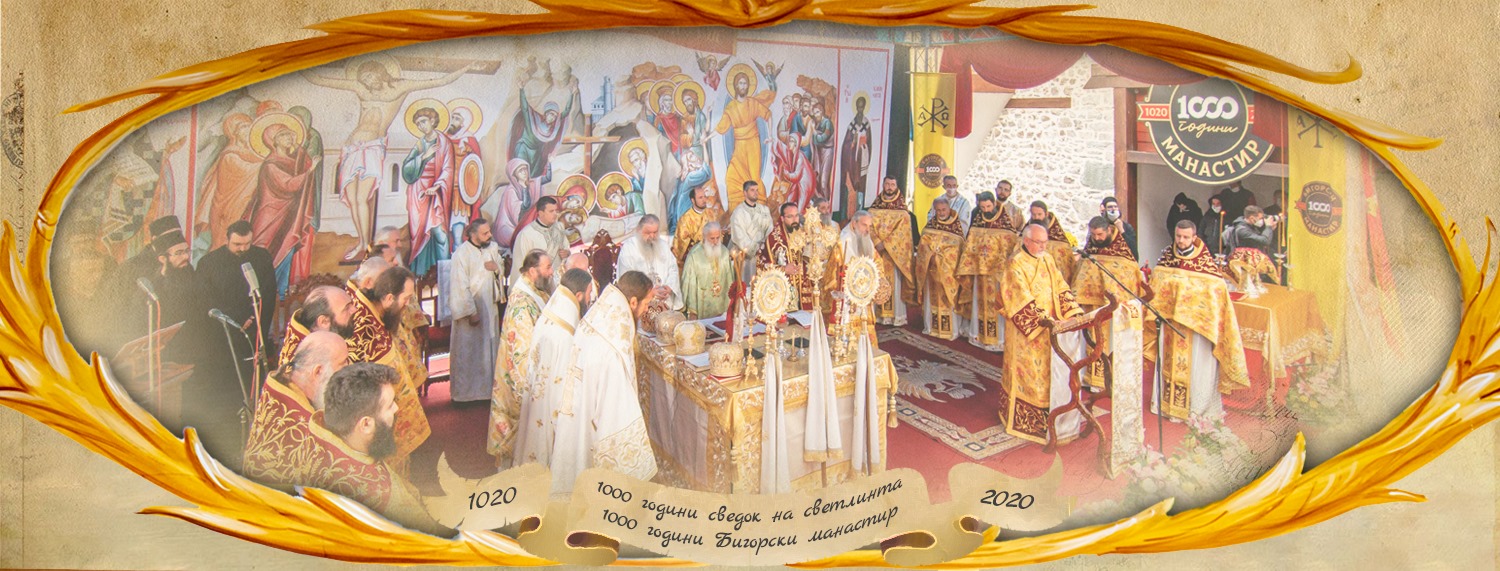
- Tell me, last year the press service of your Monastery was the first one to publish an article about Constantinople granting the Tomos to our Church. How did it happen that your Monastery was the first to find out about this news?
Bishop Parthenius: We aim to promptly inform the Macedonian faithful about the latest happenings in the Orthodox world and the monks responsible for the news update of our site, as usually did their work right. After all, the arrival of the Tomos was expected, so we were constantly on the lookout for the latest news related to the progress of the Ukrainian autocephaly issue. At the same time, we thank God and are very happy that now all Orthodox Ukrainians are in canonical unity with the One, Holy, Catholic and Apostolic Church. On this occasion, I would like to sincerely congratulate the enthroned Archbishop Epiphanius, the Prelate of the Orthodox Ukrainian Church, and to wish him gracious powers from God for the proper guidance with the word of His truth. Of course, it would have been even better if the hierarchs of the UPC-Moscow Patriarchate had accepted the invitation of the wise Patriarch Bartholomew, who convened with paternal care, and with the help of the President Poroshenko, a joint unification council, which could have resulted with a unified local Orthodox Church in Ukraine. But let us pray to the merciful God, that the ecclesiastic divisions be overcome as soon as possible, that the ancient canonical order would be restored in the Orthodox Church, which has the Constantinople Church as its Primary Throne, and that we never forget Christ’s wish and prayer for “All to be as one” (John 17,21).
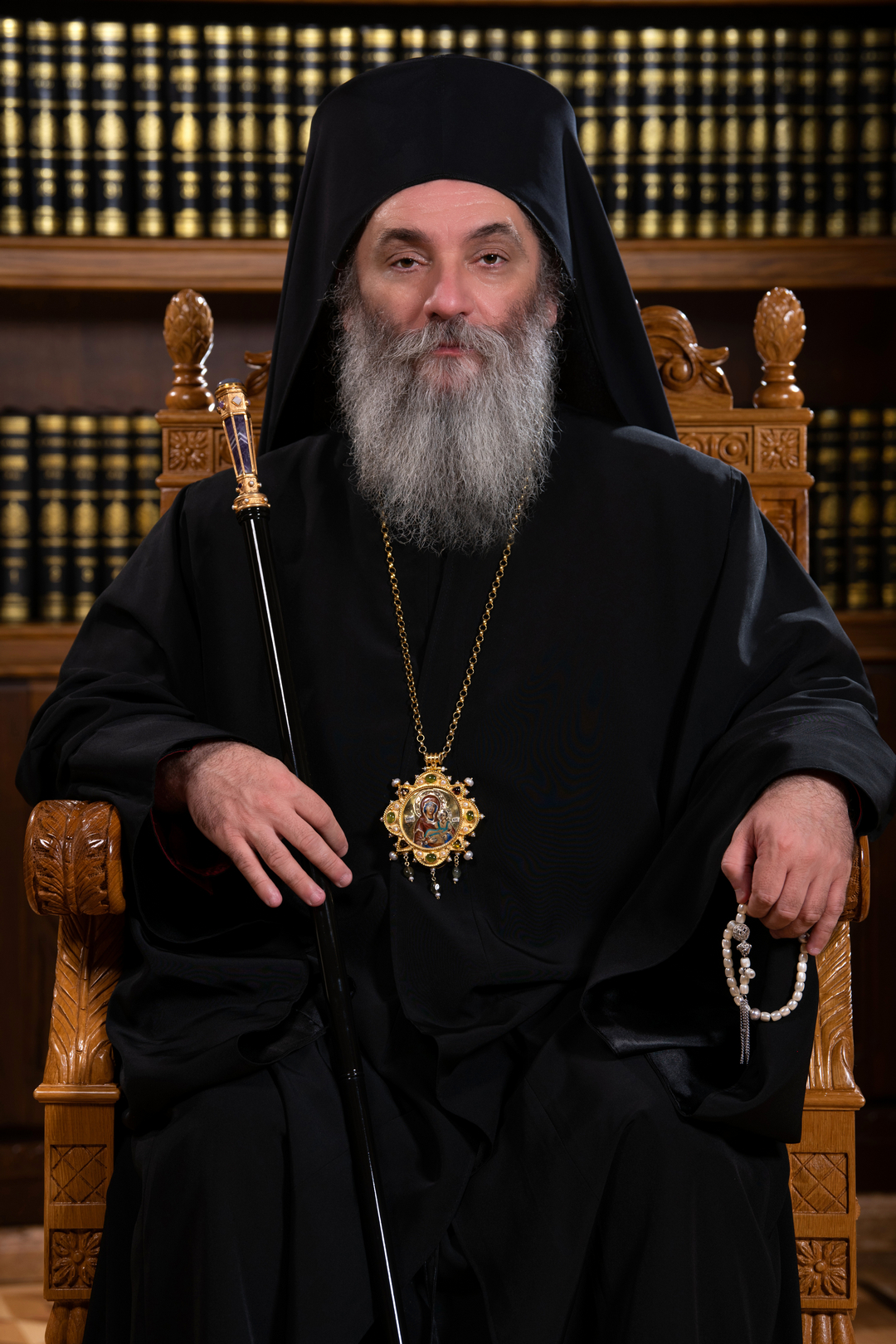
Лана Самохвалова, специјално за „Релігійної правди“. The editorial office of “Релігійної правди” sends gratitude to the Ukrainian Embassy in the Republic of North Macedonia for their cooperation in the preparation of the interview.
